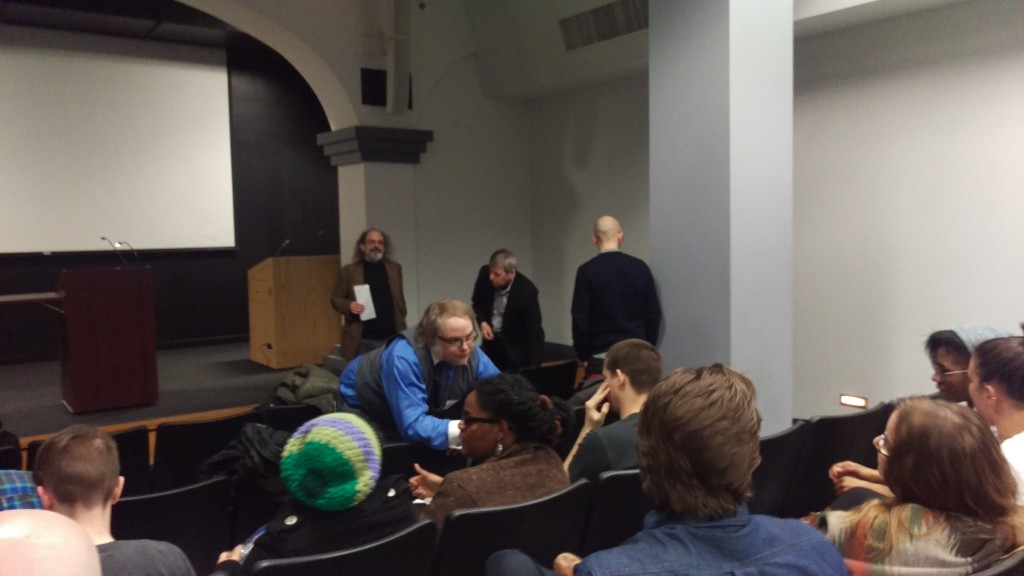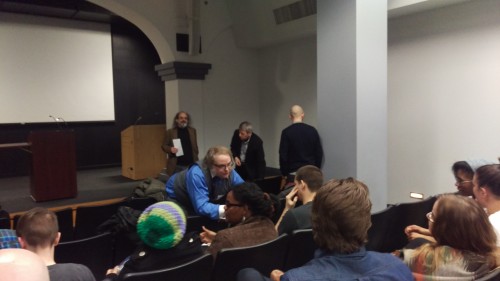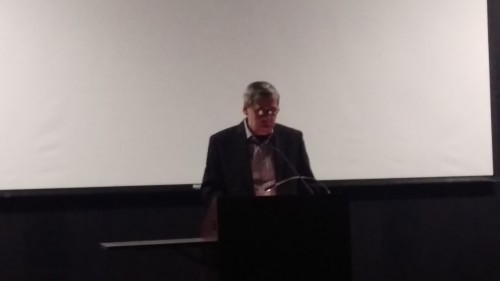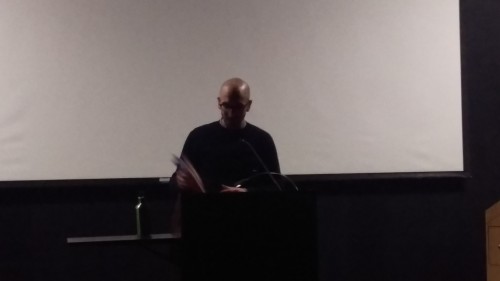
Meeting New Poets

Before the reading on Admitted Student Day 2016
One of the most exciting parts about being a graduate student is meeting and interacting with new poets. Whether this is meeting established poets at a reading, discovering young talents at the Columbia-hosted Louder Than A Bomb slam poetry competition, or hosting Admitted Students Days and being introduced to potential members of the next year’s cohort. You won’t always mesh perfectly with those poets, but in discovering them and their work, you learn a bit more about yourself and expand your horizons as a writer.
This is my first year at Columbia and thus also my first year as the Graduate Ambassador for the Poetry MFA program, and that means that this spring I was involved in my first Admitted Students Day. For those unfamiliar, it’s for students who have been admitted to the program (hence the name), and it gives them the time to ask questions of staff from Admissions, members of the poetry faculty, and current poets. We also had a reading from graduates of all three creative writing genres (this is where the pictures you’re seeing come from).

David Trinidad introducing the readers at Admitted Student Day
Perhaps the most important thing that came out of the multiple question-and-answer sessions was a question posed by recent Columbia College Chicago undergraduate alum Dan “Sully” Sullivan. He asked the graduate reader—Jacob Victorine—as well as the two second-year poets and myself, what we got out of the program besides the obvious book-length manuscript.

Jacob Victorine (Poetry MFA ’13) reading from his manuscript Flammable Matter
We all said some different things, but there was one very important benefit that each of us cited: discovering our best readers and knowing we can reach out to them for significant, high-quality feedback long after we have left the program. I know my readers in the second-year cohort and among my own first-years, and I’m excited to discover what new poets will give me the kind of feedback that helps me hone my craft and become a better poet next year and in the years beyond.
